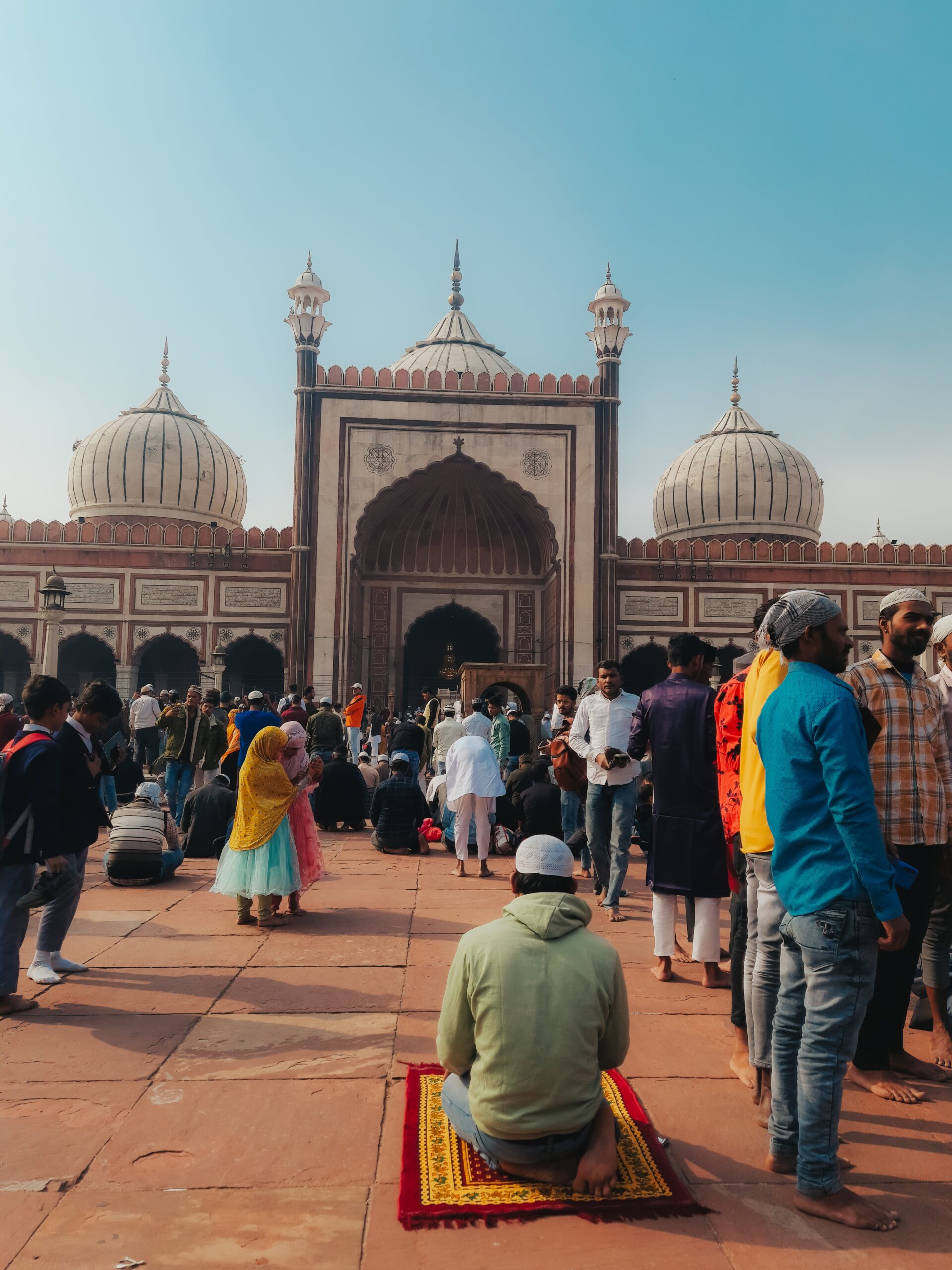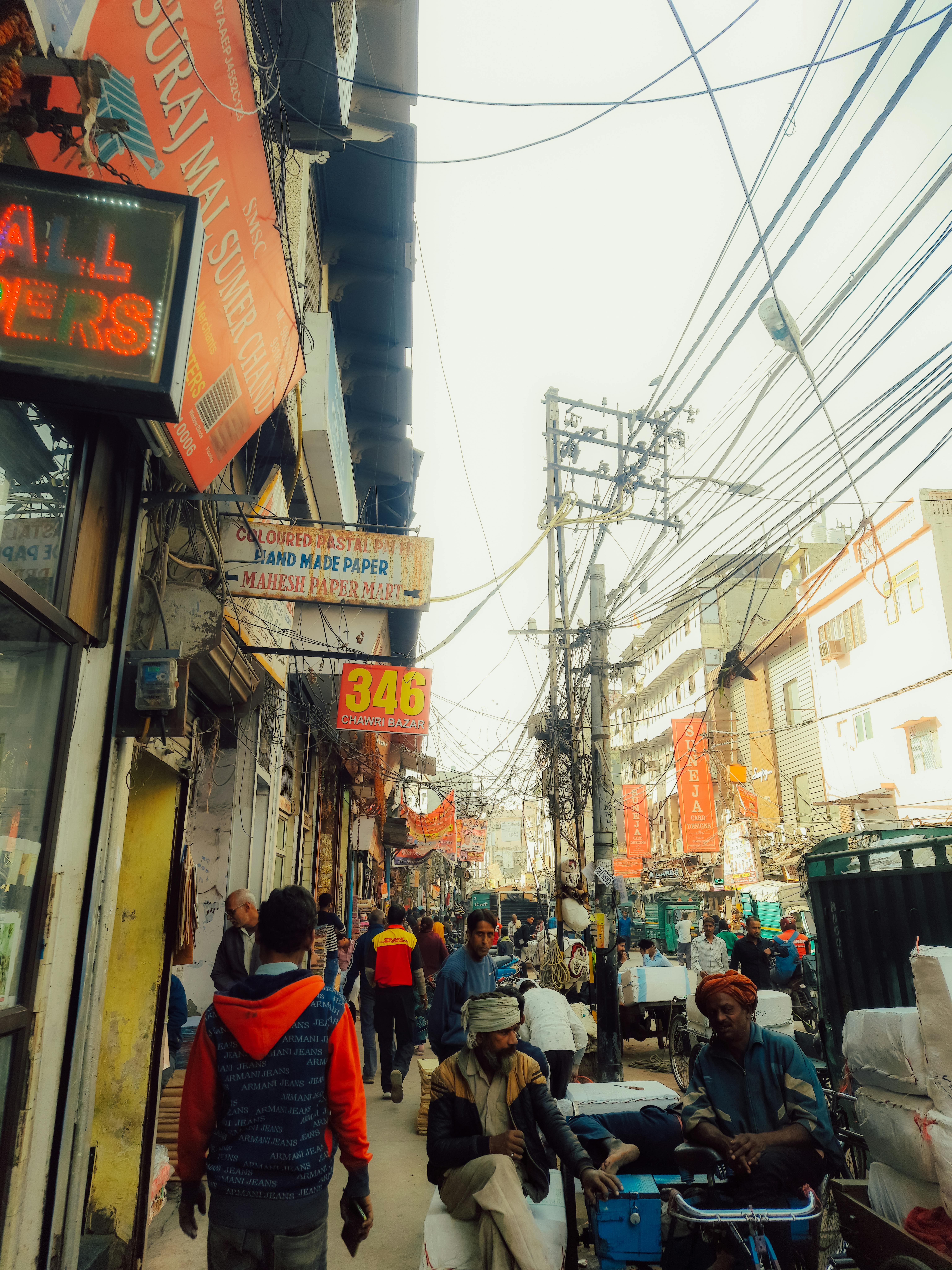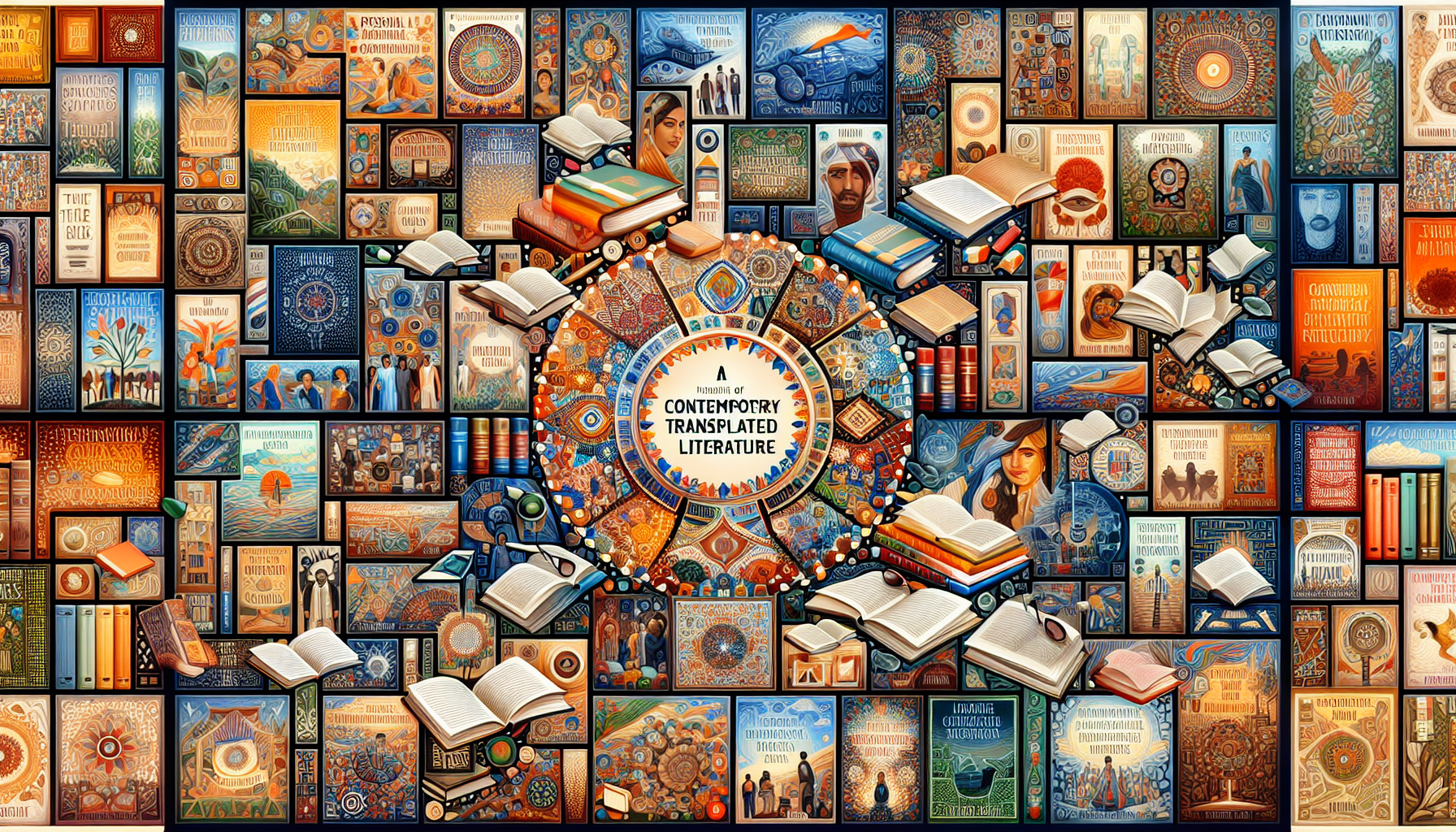Step into the vibrant world of contemporary Indian literature and discover a global readership that transcends borders. At IndianCulture.com, we invite you to embark on a literary journey filled with linguistic and literary treasures from India. Uncover the profound influence of Sanskrit, classical epics, and the works of contemporary authors as they celebrate India’s rich literary heritage. Whether you are a literature enthusiast or simply curious about Indian culture, the realm of contemporary Indian literature in translation awaits your exploration, offering a universal experience that resonates with readers worldwide.

Defining Contemporary Indian Literature
Contemporary Indian literature refers to the body of literary works that have emerged in India in recent years, reflecting the ever-changing social, political, and cultural landscape of the country. This contemporary literature not only delves into the complexities of modern Indian society but also explores universal themes that resonate with readers around the world.
Emergence of Contemporary Indian Literature
The emergence of contemporary Indian literature can be attributed to the growing number of talented Indian authors who have gained recognition both nationally and globally. Over the years, there has been a shift in focus from traditional Indian literature to works that address contemporary issues and reflect the changing dynamics of society. This shift has allowed for a more diverse and inclusive representation of Indian voices in literature.
Characteristics of Contemporary Indian Literature
Contemporary Indian literature exhibits a wide range of characteristics that set it apart from traditional Indian literature. These characteristics include a more nuanced and realistic portrayal of society, a focus on individual experiences and emotions, and an exploration of various literary forms and styles. This literature also delves into themes such as identity, cultural diversity, social disparities, and political commentary, giving voice to the concerns and aspirations of modern Indians.
Diverse Genres in Contemporary Indian Literature
Contemporary Indian literature spans across a multitude of genres, ranging from realistic fiction to magical realism, historical fiction to dystopian narratives, and poetry to graphic novels. With such diversity, contemporary Indian literature offers something for every reader’s preference. This variety in genres allows for a more comprehensive understanding of the Indian experience and provides a platform for authors to experiment with narrative techniques and storytelling styles.
Translation as a Gateway to Global Readership
Importance of Translation in Literature
Translation plays a crucial role in making literature accessible to a global readership. It serves as a bridge between cultures, allowing readers from different linguistic backgrounds to engage with works that would otherwise remain inaccessible to them. By translating contemporary Indian literature into various languages, it enables a wider audience to appreciate the beauty and richness of Indian storytelling.
Growing Demand for Translated Literature
There has been a significant increase in the demand for translated literature in recent years. Global readers are becoming increasingly curious about different cultures and are seeking out diverse voices and narratives. As a result, translated works, including contemporary Indian literature, have gained popularity and have emerged as a vibrant and enriching addition to the literary landscape.
Challenges Faced in Translating Contemporary Indian Literature
Translating contemporary Indian literature poses unique challenges due to the nuanced cultural and linguistic aspects embedded in the texts. Translators must strive to preserve the essence and authenticity of the original work while also making it accessible and relatable to readers from different cultural backgrounds. Cultural nuances, idioms, and wordplay present hurdles that translators must overcome to ensure a faithful and meaningful translation.

Prominent Translated Works
Prominent Translators of Contemporary Indian Literature
The success of translated Indian literature owes much to the dedicated efforts of translators who strive to bring these works to a wider audience. The contributions of prominent translators such as Arunava Sinha, Anita Gopalan, and Lakshmi Holmström cannot be overlooked. Their skillful translations have captured the essence of contemporary Indian literature and have allowed readers worldwide to appreciate the depth and beauty of these works.
Popular Translated Works from Indian Authors
Contemporary Indian literature offers a plethora of remarkable works that have been widely translated. Arundhati Roy’s “The God of Small Things” is a compelling novel that explores the complexities of caste, love, and loss. “The Namesake” by Jhumpa Lahiri is another noteworthy work that delves into themes of identity, assimilation, and generational conflicts. Indian authors such as Salman Rushdie, Amitav Ghosh, and Vikram Seth have also gained international acclaim for their thought-provoking and beautifully written novels.
Recognition and Awards for Translated Indian Literature
The recognition and accolades received by translated Indian literature demonstrate the impact and significance of these works on the global literary stage. The Man Booker International Prize, the International Dublin Literary Award, and the Crossword Book Award for Indian Language Translation are just a few of the prestigious awards that have recognized the outstanding translations of contemporary Indian literature. These accolades not only honor the translators but also highlight the quality and importance of the original works.
Themes and Perspectives in Contemporary Indian Literature
Exploration of Cultural Diversity
Contemporary Indian literature provides a window into the immense diversity of Indian culture, with its myriad of languages, religions, traditions, and lifestyles. Indian authors skillfully depict the vibrant tapestry of Indian society, capturing the essence of different regions and communities. Through their narratives, they explore issues of identity, heritage, and the clash between traditional values and modern aspirations, offering readers a deeper understanding of India’s rich cultural mosaic.
Social Issues and Political Commentary
Contemporary Indian literature often serves as a medium for social critique and political commentary. Authors use their works to shed light on pressing societal issues such as caste discrimination, gender inequality, religious tensions, and socio-economic disparities. By tackling these topics, Indian authors encourage readers to contemplate and engage with the complexities of Indian society, fostering important conversations and advocating for change.
Feminism and Gender Representation in Literature
Gender representation is a recurring theme in contemporary Indian literature, with many authors incorporating feminist perspectives in their works. Indian women writers explore the struggles, triumphs, and experiences of women in Indian society, giving voice to their perspectives and challenging traditional gender roles. Through their narratives, they bring attention to issues such as patriarchy, domestic violence, and women’s empowerment, contributing to the global discourse on gender equality.

Contemporary Indian Authors and Their Impact
Celebrated Indian Authors of the Modern Era
Contemporary Indian literature boasts a roster of celebrated authors who have made a significant impact on both Indian and global literary scenes. Authors like Arundhati Roy, Aravind Adiga, and Kiran Desai have won prestigious awards, capturing readers’ hearts with their thought-provoking narratives. Their works have not only garnered critical acclaim but have also opened doors for other Indian authors to gain recognition and share their unique perspectives with the world.
Influence of Contemporary Indian Authors on Global Literature
The influence of contemporary Indian authors on global literature cannot be overstated. Their thought-provoking narratives, rich storytelling traditions, and unique perspectives have inspired and influenced writers worldwide. Indian authors have brought the intricacies of Indian culture and society to the forefront of the global literary conversation, allowing readers to explore and appreciate the diverse experiences of Indian individuals and communities.
Indian Authors’ Role in Shaping Cultural Conversations
Contemporary Indian authors play a pivotal role in shaping cultural conversations, both within India and beyond its borders. By addressing social issues, challenging traditional norms, and spotlighting marginalized voices, Indian authors contribute to a more inclusive and empathetic society. Their works prompt readers to question and reflect upon their own beliefs, fostering a deeper understanding and appreciation of the human experience.
Reader Reception and Appreciation
Growing Popularity of Contemporary Indian Literature
Contemporary Indian literature has witnessed a surge in popularity among readers worldwide. Global audiences are drawn to the authenticity, diversity, and unique storytelling styles found in these works. The increasing visibility of Indian authors, along with the recognition garnered by translated works, has led to a growing appreciation for contemporary Indian literature, establishing it as an essential part of the global literary canon.
Reception of Translated Literature by Global Readers
The reception of translated Indian literature by global readers has been overwhelmingly positive. Readers appreciate the opportunity to explore different cultures, gain insight into the Indian experience, and engage with perspectives that enrich their own understanding of the world. Translated works allow readers to transcend linguistic barriers, fostering a sense of empathy and connection with characters and settings that may be unfamiliar to them.
Impact of Global Readership on Indian Authors
The global readership of contemporary Indian literature has had a profound impact on Indian authors. It has provided them with a platform to share their stories, reach a wider audience, and receive international acclaim. The exposure to diverse readerships also enriches their own writing and encourages them to explore new themes and perspectives. Additionally, global readership opens up opportunities for collaborations, translations, and cross-cultural exchanges, further elevating Indian literature on the global stage.
Literary Festivals and Events
Literary Festivals Promoting Contemporary Indian Literature
Literary festivals play a crucial role in promoting contemporary Indian literature and fostering a vibrant literary culture. Events such as the Jaipur Literature Festival, Kolkata International Film Festival, and Bangalore Literature Festival provide platforms for Indian authors to showcase their works, engage in literary discussions, and connect with readers. These festivals not only celebrate Indian literature but also facilitate cultural exchanges between Indian and international authors.
International Events Showcasing Indian Translations
International events also provide a stage for showcasing translated Indian literature. Literary festivals and book fairs around the world, such as the Frankfurt Book Fair and the London Book Fair, feature Indian translations prominently, allowing global readers to discover and appreciate the richness of Indian storytelling. These events create opportunities for dialogues, collaborations, and the exchange of ideas, further enhancing the visibility and reach of translated Indian literature.
Role of Literary Events in Connecting Authors and Readers
Literary events serve as a crucial link between authors and readers, fostering a sense of community and dialogue. They provide a space for authors to interact with their readers, discuss their works, and gain insights and feedback. Literary festivals and events also facilitate cultural exchange by bringing together authors from different countries and backgrounds, fostering cross-cultural understanding and promoting the global appreciation of literature.
Publishing Industry and Market Trends
Role of Publishing Houses in Promoting Translations
Publishing houses play a vital role in promoting translated Indian literature. They collaborate with translators, authors, and literary agents to ensure high-quality translations that capture the essence of the original works. Publishers also invest in marketing, distribution, and promotion to generate awareness and interest in these translated works, making them accessible to readers worldwide. The support and commitment of publishing houses are essential in bridging the gap between Indian authors and global readers.
Emerging Trends in the Translation Market
The translation market has witnessed significant growth and diversification in recent years, reflecting the increasing demand for translated literature. Publishers, both traditional and independent, are actively seeking out translations of contemporary Indian literature to cater to this burgeoning market. Additionally, digital platforms and e-books have made translations more accessible, allowing readers to explore a wide range of works from different cultures and languages.
Impact of Digital Platforms on Readership
Digital platforms have revolutionized the way readers access and engage with literature, including translated Indian works. E-books and online platforms have made translations readily available to readers across the globe, breaking down geographical barriers and expanding the reach of contemporary Indian literature. The ease of accessing translations through digital platforms has contributed to the growing popularity of Indian authors and their works, fostering a more globally connected literary community.
Translation Initiatives and Organizations
Organizations Dedicated to Translating Indian Literature
Several organizations are dedicated to promoting and facilitating the translation of Indian literature. The Sahitya Akademi, Indian Literature Abroad, and the Indian Translators Association are a few notable organizations that actively support translators and endeavor to bring Indian literature to a broader audience. These organizations provide resources, funding, and networking opportunities, fostering collaboration and ensuring the continued growth of translated Indian literature.
Prominent Translation Initiatives and Projects
Translation initiatives and projects have played a crucial role in bringing contemporary Indian literature to a global readership. Initiatives such as the Indian Novels Collective and the Indian Poetry Project have been instrumental in identifying talented translators, encouraging cultural exchange, and ensuring that a wide range of Indian literary works are accessible to readers around the world. These projects contribute to the diversity and vibrancy of translated Indian literature.
Collaborations for Promoting Translations
Collaborations between translators, publishers, and literary organizations are essential for promoting translations and supporting the growth of contemporary Indian literature. By working together, these stakeholders can ensure the quality, accessibility, and wide dissemination of translated Indian works. Collaborations also foster cross-cultural understanding, create opportunities for dialogue and exchange, and contribute to the global appreciation of Indian literature.
Future Prospects and Challenges
Opportunities for Further Global Readership
The future of contemporary Indian literature in translation holds immense potential for further global readership. As the demand for diverse voices and stories continues to grow, Indian authors and their works are well-positioned to attract and engage a larger audience. With increasing support from translators, organizations, and publishers, contemporary Indian literature has the opportunity to reach new readerships and contribute to the global literary canon.
Challenges in Preserving Cultural Nuances in Translations
Preserving the cultural nuances and specificities of the source language is a critical challenge in translating contemporary Indian literature. Translators must navigate the complexities of linguistic and cultural nuances to ensure an authentic and faithful representation of the original work. Striking a balance between faithfulness to the source language and making the work accessible to readers from different cultural backgrounds requires skill and a deep understanding of both the source and target languages.
Sustaining the Momentum of Translated Indian Literature
Sustaining the momentum of translated Indian literature requires ongoing support from various stakeholders, including translators, publishers, literary organizations, and readers. Efforts should be made to foster a conducive environment for translations, provide resources and funding for translators, and create platforms for collaboration and exchange. Additionally, readers play a crucial role in sustaining the demand for translated works by actively seeking out and supporting these literature offerings, ensuring the continued growth and vibrancy of contemporary Indian literature in translation.
In conclusion, contemporary Indian literature in translation offers a diverse and dynamic range of narratives and perspectives that captivate and engage readers around the world. Through the efforts of translators, publishers, and literary organizations, these works have gained recognition and appreciation on the global literary stage. As the demand for translated literature continues to grow, the future of contemporary Indian literature holds immense potential for further global readership, allowing for a deeper understanding and appreciation of Indian culture, society, and the human experience as a whole.
